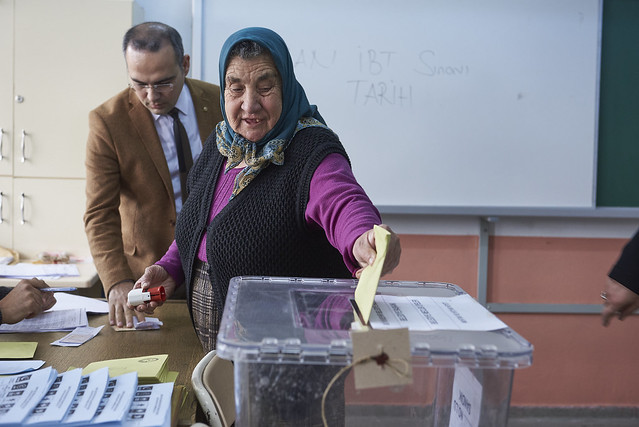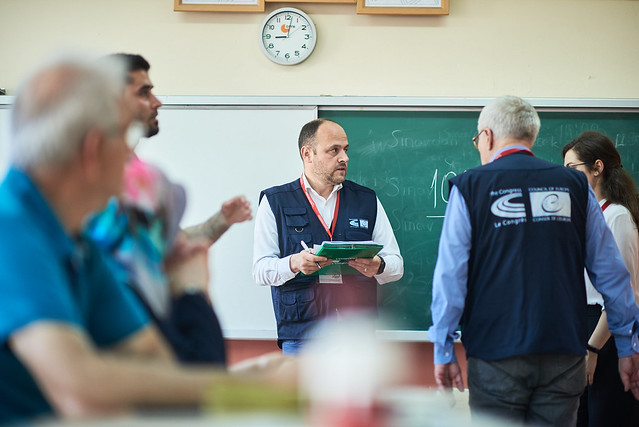Observation of the local elections in Turkey - 2019
Andrew Dawson is the Rapporteur and Head of the delegation observing the local elections in Turkey
PACE Monitoring Committee meeting, 16 May 2019
Statement by Andrew Dawson
Congress Monitoring Committee meeting, 3 July 2019
Statement by Andrew Dawson
Flickr Galleries :
- Local elections in Turkey (31 March 2019)
- Re-run of the mayoral election (23 June 2019)
How does the Congress organise its election observation?
The observer missions are conducted at the official request of the national authorities concerned (eg a ministry or the Central Electoral Commission). On receipt of such a request, the Congress sets up a delegation responsible for observing the election, normally comprising between 10 and 15 of its members (elected representatives of territorial communities in the 46 Council of Europe member states).
Before the day of the election, several meetings are held to assess the state of electoral democracy, with the participation of governmental institutions, local and regional elected representatives, representatives of the public administration (electoral commissions), political parties (government and opposition), the media, diplomatic circles and civil society.
Pending a decision from the Bureau of the Congress, a pre-election delegation (comprising between two and five members) may also be detailed to assess the overall political situation of the country and the electoral campaign and investigate the legal framework for the elections.
Who are the Congress observers
The political composition of delegations is proportional to the representation of the political groups in the Congress. The Congress also ensures fair representation of its non-registered members.
It also strives to achieve balanced gender representation (minimum one-third female members, in accordance with the Charter of the Congress). Lastly, it attempts to secure balanced representation of both Congress Chambers and of the various member states of the Council of Europe.
Conclusions and follow-up
At the end of every election observation mission, the Congress delegation publishes a preliminary statement, which is normally read out at an on-the-spot press conference at the close of the elections. A report is subsequently drawn up by the Congress member who was appointed Rapporteur for the mission.
His or her report deals not only with the procedures and facts observed on election day, particularly during the voting and vote-counting, but also with the general political situation in the country, including the state of fundamental rights and freedoms, the atmosphere which prevailed during the election campaign and any progress noted on the democracy front.
This report is submitted to the Bureau of the Congress. It is subsequently assessed and adopted by the Congress in plenary session. A recommendation (to the national authorities) and resolution (to the local and regional authorities) mark the end of the observation exercise.
Transversal reports
In addition to the country-specific observations and election reports, the Congress developed a strategy to better address problems which are of broader relevance. Such recurring transversal issues include, in particular:
- the situation of independent candidates and opposition in local and regional elections (2022);
- beyond elections: The use of deliberative methods in European municipalities and regions (2022);
- holding referendums at local level (2021);
- recurring issues based on assessments resulting from Congress monitoring of the European Charter of Local Self-Government and election observation missions (reference period 2017-2020);
- local and regional elections in major crisis situations (2020);
- voting rights at local level as an element of successful long-term integration of migrants and IDPs in Europe’s municipalities and regions "(2018);
- checklist for compliance with international standards and good practices preventing misuse of administrative resources during electoral processes at local and regional level (2017);
- electoral lists and voters residing de facto abroad (2015);
- voting at 16 – Consequences on youth participation at local and regional level (2015).
Monitoring Committee and Observation of local and regional elections

Stéphanie Poirel
Assistant: Ekaterina Kotnova
+ 33 3 90 21 52 44





